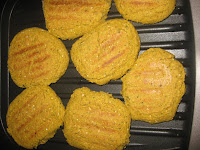Nutrition 101:
Sliced bread, salad dressing, soup - we don't typically think of these foods as being sweet. But the versions on your grocer's shelves probably have added sugar. For November, American Diabetes Month, let's reveal the sugars that are hiding out in our food supply.
The Sweet and the Sour
Glucose is vital to human health. When we talk about 'blood sugar,' we're talking about glucose. A simple sugar, it is our bodies' main energy source. In fact, the brain runs exclusively on glucose.
When found naturally in grains, vegetables and fruits, glucose and other sugars come into the body with a horde of vitamins, minerals and fiber. But it's refined, or processed, sugars that too many Americans are over-consuming, and that's associated with at least two health issues: cavities in children and soaring obesity rates.
Hiding in Plain Sight
The best way to decrease the amount of refined sugar that we consume is to read the Nutrition Labels and Ingredient Lists on packaged foods. Even foods that we don't think of as sweet - from crackers to frozen dinners to spaghetti sauce - can have high amounts of hidden sugar.
The
Nutrition Label will list the total carbohydrates, often breaking that total down into dietary fiber, complex carbs and simple sugars. Overall, the Label lets you see not just how much sugar you're getting, but how much protein, vitamins and more; and that lets you judge which calories are 'empty' and which are nutritious.
Finding Hidden Sugars
"A rose by any other name would smell as sweet," Juliet told Romeo. Well, sugar has many different names; all taste sweet, but not all are created equal. Below are some of the different names for sugar that you'll find when you check the
Ingredients List.
▪
Sucrose is table sugar. A refined sugar derived from beets or sugar cane, it contains two sugar molecules: glucose and fructose. (
Note: ingredients ending in -
ose are usually some type of sugar.)
▪
Fructose is the sugar found naturally in fruits. Often used to sweeten foods, it is absorbed by the body more slowly than other sugars, so it does not spike blood-sugar levels. Fructose is recommended for diabetics in limited amounts.
▪
Evaporated cane juice is popular in natural/organic packaged foods. It's still cane sugar, but it's less processed so it contains more minerals. The health benefit over regular sugar would be slight.
▪
Fruit juice concentrate is touted as being a natural, healthier sweetener. It may still have traces of minerals, but it's still primarily sugar; and to your body, glucose is glucose, no matter where it's from.
▪
Dextrose, Maltodextrin, and Corn syrup are all refined sugars derived from corn starch.
▪
High fructose corn syrup (HFCS) is made by chemically processing corn syrup. Many are concerned about its effect on the human body, but no studies have conclusively proven that this substance is any more harmful to humans than other sugars.
Because corn is subsidized by our tax dollars, HFCS is much cheaper than cane or beet sugar, so it is more widely used by the food industry. Look for it on the labels of ketchup, salad dressing, baked goods and, of course, soda.
▪
Xylitol, Sorbitol and Mannitol are called sugar alcohols. They taste like sugar, but your body treats them like alcohol - that is, your body absorbs them only partially or so slowly that they do not spike your blood sugar.
With only half the calories of regular sugars, sugar alcohols are used in many low-calorie, low-sugar foods and diabetic products. With overconsumption, though, they can still provide a significant source of calories.
Front-of-Package Claims
Before you get to the fine print, you'll see some brightly colored text on front about sugar. And though the phrases may seem clear, they do need a little interpretation.
▪
No added sugar - Products with this label may not be 100% sugar-free; they may still contain natural sugars. Be sure to check the Nutrition Label to see how many grams of sugar it really has.
▪
Sugar-free - This only means that the product contains no sucrose, but it can contain other types of sugars and carbohydrates. Again, read the labels to fully understand what this product contains.




